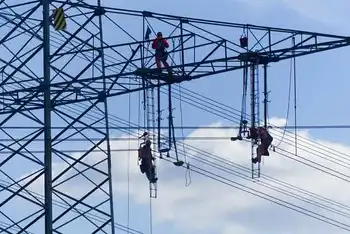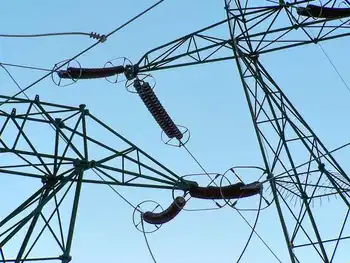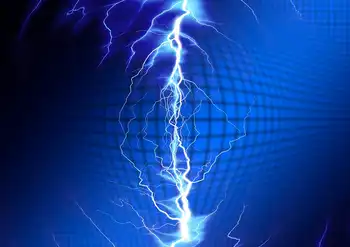Smart grid will reduce outages, usage: survey
By Electricity Forum
Electrical Testing & Commissioning of Power Systems
Our customized live online or in‑person group training can be delivered to your staff at your location.

- Live Online
- 12 hours Instructor-led
- Group Training Available
In the wake of recent NorÂ’easters that left hundreds of thousands without power for days, nearly four of every five Americans (78 percent) familiar with the term smart grid say that it would help reduce the number of power outages and restore power more quickly when outages do occur, according to a survey released by GE.
Utilities like Con Edison, Connecticut Light & Power Co. and New JerseyÂ’s PSE&G electric company were hit hard earlier in March when powerful storms caused outages and darkened much of New York, New Jersey, Pennsylvania and Connecticut.
“Real-time awareness of what’s happening across the entire electrical network is a top smart grid feature,” said Bob Gilligan, vice president — transmission and distribution, for Atlanta-based GE Energy Services. “The systems that make up the smart grid are designed to help utilities get power back up and running faster than ever before.”
The survey, commissioned by GE and conducted by StrategyOne in March 2010, found that although more than three-quarters (79 percent) of American consumers are still not familiar with the term “smart grid,” those that have heard of it are ready to upgrade the nation’s electrical network. The Obama Administration is spending $4.5B on smart grid initiatives and many projects in Colorado, Ohio and Hawaii are already hitting important consumer milestones.
“It’s critical that stakeholders responsible for the development of a smarter electrical grid, policy makers, regulators, utilities and organizations like GE, commit to an investment in consumer education efforts,” Gilligan said.
Too few U.S. consumers (4 percent) have heard of smart grid or have a good understanding how it affects them. However, of those that are familiar with the term “smart grid,” the survey went on to find that the majority (80 percent) are ready and willing to learn more about what smart grid is, how it will benefit them and how they can even determine if they are connected to a smart grid. In fact, 69 percent of those respondents aren’t even sure if they are already connected to one.
The good news is that most of them (80 percent) believe that smart grid will help the country rely more on clean domestic energy sources (i.e. wind, solar, biogas, etc.). Among other top perceived benefits:
• 74 percent understand that smart grid will give them the info they need to make better decisions about their electricity usage;
• 72 percent think that smart grid will help them save money on their monthly bills;
• 63 percent believe smart grid will create new jobs in the energy sector.
More broadly, nearly all (96 percent) were overwhelmingly positive about the benefits they would experience from smart grid.
Consumers are ready to embrace the smart grid, and particularly time-of-use pricing models (75 percent of those familiar with smart grid), if it helps them save money. However, some consumers (32 percent) recognize that it will take some time to get time-of-use pricing set up, and even then, 31 percent believe that there is still some education needed to help their friends, family and colleagues get on board with smart gridÂ’s benefits.
Time-of-use pricing is not a new concept to consumers. Similar to how they are billed for cellular services, time-based pricing is a special case of price discrimination in which producers charge different rates for a given good or service depending on the time, day, month, etc. Time-of-use pricing, specifically, is where electricity prices are set for a specific time period. Prices paid for energy consumed during these periods are provided to consumers in advance, allowing them to vary their usage in response to such prices and manage their energy costs by shifting usage to a lower cost period or reducing consumption overall.
“Although 45 percent of Americans have expressed concern about potential challenges to rolling out smart grid projects, most of them see government and industry financial spending decisions as the biggest hurdle,” Gilligan explained. "We are at an advantage over other countries in that consumers are overwhelmingly focused on maximizing smart grid’s benefits rather than worrying about how it might get slowed down. Now is the time for us to make a collaborative effort to educate consumers about why smart grid is so important to supporting 21st century energy in the U.S. and throughout the world.”
The survey was conducted through telephone interviews with a nationally representative sample of 1,000 U.S. consumers. The margin of error for the sample is plus or minus 3.1 percent at the 95 percent level of confidence.











